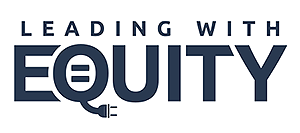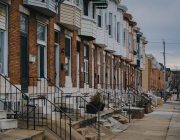Through our Leading with Equity initiative, ACEEE convenes community-based organizations, advocates, and utilities to develop a shared vision for equitable decarbonization and works to ensure that ACEEE’s research and policy efforts help realize that vision.
| Resources |
The Problem:
Too many Americans struggle to pay energy bills because they live in inefficient buildings while also facing rising transportation costs and inadequate transit options. Many low-income communities and communities of color lack easy access to comprehensive programs and services from their utilities, states, or cities. These historically under-resourced communities are often excluded from energy planning and decision making, which perpetuates the cycle of exclusion, underinvestment, and inequitable clean energy policy and program outcomes.What do we mean by energy equity?
“Energy equity recognizes the historical and cumulative burdens of the energy system borne by frontline and low-income communities and by Black, Brown and Native people in particular. To eliminate these disparities, energy equity centers the voices of frontline communities in energy planning and decision-making and ensures the fair distribution of clean energy benefits and ownership.” (Energy Equity Project 2022)
In defining energy equity, ACEEE uses the four dimensions of equity outlined in the 2014 Equity in Sustainability report by Angela Park and her colleagues at the Urban Sustainability Directors Network. These categories are procedural, structural, distributional, and transgenerational equity. Significant change is necessary in all four categories to achieve an equitable energy future.
For over 17 years, ACEEE scorecards and other progress reports have helped benchmark and drive clean energy action by states, localities, and utilities. They identify best practices and set a high bar for clean energy leaders. In 2021, with support from the Barr Foundation, the Kresge Foundation, and The JPB Foundation and in collaboration with Kinetic Communities Consulting and AEClinic, ACEEE launched our Leading with Equity initiative to ensure that our scorecards aren’t just evaluating the energy efficiency actions taken by states, localities, and utilities but also whether these actions are equitable, from their development to their outcomes. Metrics that capture progress toward equity-centered clean energy policy and program outcomes can enable communities to generate the data needed to benchmark progress, hold leaders accountable, and drive more equitable decarbonization for all.
The Leading with Equity initiative aims to:
- Ensure frontline communities, including climate vulnerable communities, communities of color, low-income communities, and other historically disinvested communities, are represented and help drive the development of improved equity-related metrics
- Better understand current utility, state, and city capacity to report data on desired equity-related metrics
- Implement proposed changes in ACEEE’s city, state, and utility scorecards, setting the bar in a way that represents real performance on the metrics that matter most to communities
In its first years, the initiative has collaborated with community partners and begun implementing new metrics in ACEEE research
In 2021, the first year of this project, we convened community-based organizations (CBOs), advocates, and utilities to define success for equitable decarbonization, identify barriers to accessing equity-related data, and prioritize equity-focused metrics for inclusion in ACEEE’s scorecards. To learn more about those workshop conversations and the equity-related metrics identified through the process, check out the key findings from the first year of our initiative.
CBOs and advocates identified 12 key actions to advance energy equity, shown in the figure below.
In 2022, ACEEE convened three workshops with a cohort of CBOs and advocates focused on reviewing new scorecard metrics, developing recommendations for state governments, regulators, and utilities, and identifying energy efficiency actions that support the building of community wealth. To learn more about those workshop conversations, check out the summary of the second year of the initiative. ACEEE also published the 2022 State Scorecard, our first scorecard since the start of the Leading with Equity initiative and the first to include recommendations from the initiative. We met our goal of increasing the percentage of equity-related metrics from 4% in the 2020 edition to over 20% in 2022.
Sign Up for Our Leading with Equity Newsletter
Interested in learning more about our equity metrics efforts and/or want to share your own recommendations around improving and expanding equity metrics for city, state, and utility decarbonization? Please fill out this form to be kept up to date on the initiative and ways to be involved.
What’s Next?
We are continuing to implement more and better equity-related metrics in our upcoming scorecards. The next Utility Scorecard will be published in summer 2023, and the City Scorecard will follow in early 2024. Both will include improved and new equity-focused metrics. We continue to seek input from community-based organizations and the broader clean energy community to ensure that our new metrics lead to more equitable policy and program outcomes.
As we continue working to better address and center equity in ACEEE scorecards and other research, we will be implementing a more robust process for CBOs to directly review and comment on ACEEE scorecards, including appropriately compensating CBOs for their expertise and time.
We also plan to create resources, including one-pagers accompanying scorecards, that highlight equity-related trends or case studies.
Accountability and Transparency Commitment
ACEEE is committed to ensuring that the priorities of community-based organizations are integrated into our upcoming scorecards through a transparent and collaborative process. Adapted from the Sierra Club’s Shared Accountability Framework, which was developed in partnership with community-based organizations in Miami, we are committed to the following pillars of accountability:
- Evaluation: ACEEE will take concrete steps to plan for and measure progress toward incorporating equity metrics into our scorecards. We will ensure that these metrics align with the priorities of CBOs and frontline communities.
- Transparency: ACEEE will publicly express our commitment, plan, and outcomes related to this goal through updates and additional opportunities for stakeholder engagement and feedback.
- Relationships: We will engage with and listen to frontline communities and CBOs to ensure that our research and technical assistance best supports and bolsters their advocacy needs through mutually supportive partnerships.
- Improvement: ACEEE will continue to revise our scorecards and explore new ways of measuring success with each edition. We recognize that this is a continuous process and are committed to iterating on the metrics in our scorecards in coming years to move energy policy toward a more equitable future.
Partner Research
In addition to holding workshops to refine next steps on equity metrics, partners explored research on how to evaluate programs through the lens of equity impacts. The following white paper provides more information:
- White Paper by Applied Economics Clinic, October 2021: Recommendations for Cities and States to Improve Equity Evaluation and Reporting in Energy Efficiency Programming







